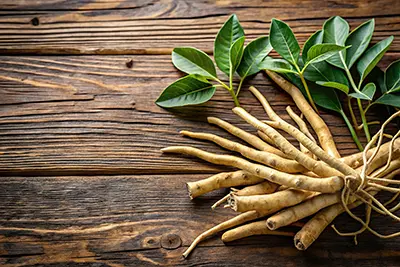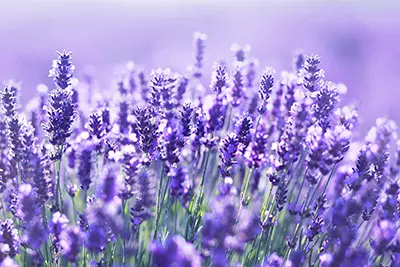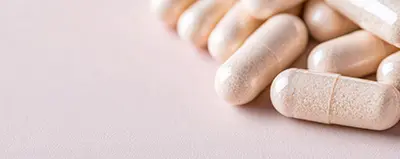Is Selecting Stress Relief Stressing You Out?
Patients seeking guidance and support for stress reduction are incredibly common in naturopathic practice. Due to the increasing prevalence of anxiety disorders [i] and the health impacts of unmanaged anxiety, natural products for relieving stress are needed now more than ever. With so many options, it can be difficult to understand which can be useful and when. Here is a breakdown of some of the most commonly recommended supplements by naturopathic doctors to support anxiety naturally.
 Ashwagandha
Ashwagandha
Ashwagandha is a traditional Ayurvedic herb classified as an adaptogen.[ii] The term “adaptogen” is used to describe botanicals which possess properties that enhance the body’s resilience to stress. As per its classification, ashwagandha has been shown to significantly reduce stress and anxiety among healthy adults and those with psychological disorders.[iii] Ashwagandha also helps lower cortisol, a commonly used biological marker for stress. In addition to stress-relieving effects, ashwagandha has also been shown to improve mood.[iv]
Orally, ashwagandha seems to be well-tolerated; however, certain people should not consume it. Ashwagandha has been associated with case reports of hepatotoxicity, so those with liver disease should abstain from using it. Ashwagandha should also be avoided during pregnancy and lactation, as well as by those who have thyroid and autoimmune disorders. Ashwagandha can also interact with medications, including those for blood pressure, diabetes, immunosuppression, and the thyroid.[v]
ʟ‑Theanine
ʟ‑Theanine is a bioactive amino acid naturally occurring in green tea, with relaxation-promoting effects.[vi] ʟ‑Theanine can pass the blood-brain barrier, a membrane impermeable to many other substances. Within the brain, ʟ‑theanine generates alpha brain waves. This electrical activity is associated with wakeful relaxation.[vii] Amongst healthy adults, 200 mg of ʟ‑theanine per day for 4 weeks significantly reduced self-reported depression and anxiety while reducing sleep-onset time, in comparison to placebo. ʟ‑Theanine administration also significantly improved several measures of cognition, including verbal fluency, letter fluency, and executive function.[viii]
In combination with caffeine, ʟ‑theanine also shows favourable effects on attention, memory, cognition, and hyperactivity.[ix] Male children with ADHD administered ʟ‑theanine with caffeine experienced improved sustained attention and reduced impulsivity.[x] ʟ‑Theanine has also been shown to improve sleep quality amongst boys with ADHD aged 9–12 years, with no adverse effects.[xi]
ʟ‑Theanine may possess blood pressure–lowering effects. Therefore, ʟ‑theanine should be used with caution amongst those taking antihypertensive medications or in conjunction with other supplements with blood pressure–lowering effects. ʟ‑Theanine may also interact with central nervous system (CNS)–depressant medications.[xii]
 Lavender
Lavender
Lavender may be a suitable option for those looking for both stress relief and sleep support. Oral lavender supplementation exhibits anxiolytic effects in adults with generalized anxiety disorder (GAD).[xiii] Higher doses of lavender (160 mg per day) were associated with greater reductions in anxiety in comparison to lower doses (80 mg per day) after 10 weeks of treatment. The anxiety-reducing effects of lavender treatment were comparable to treatment with conventional anxiety therapy with paroxetine, a selective serotonin reuptake inhibitor (SSRI). The rate of adverse effects for those taking lavender was comparable to placebo and lower than that of paroxetine treatment.[xiv]
Oral lavender supplementation has also been shown to improve sleep quality and reduce anxiety-related sleep disturbances (without sedation) in adults with anxiety.[xv] As a potential alternative for those who cannot tolerate oral preparations, lavender essential-oil aromatherapy has also been shown to improve sleep quality in various populations.[xvi] Lavender may interact with CNS-depressant medications and products with sedative activity.[xvii]
Crocus sativa, also known as saffron, is an herb with anti-inflammatory, antitumour, and anticonvulsant properties, as well as benefits for learning and memory.[xviii] Saffron has also been shown to support mood and reduce stress levels, making this nutraceutical an option for those with anxiety accompanied by depression. Saffron has been shown to reduce anxiety in those with GAD,[xix], [xx] and to improve mood in those with major depressive disorder (MDD).[xxi] Saffron’s antidepressant effects are also comparable to pharmacological agents prescribed for MDD,[xxii] but with fewer adverse effects.[xxiii]
Studies have also examined saffron as an adjunctive treatment to conventional pharmacotherapy with SSRIs. Alongside pharmacotherapy, saffron contributed to further improvements in anxiety [xxiv] and depression [xxv] compared to pharmacotherapy alone.
Safety information for saffron includes interactions with supplements and medications which exert blood sugar– and blood pressure–lowering activity. Saffron may also interact with CNS depressants and supplements with sedative activity and can exacerbate bipolar disorder.[xxvi]
This ingredient is one of the few that can be safely used by teens aged 12 and up. Families looking for nonprescription solutions for mood balance and stress relief can find comfort in this product’s effectiveness.
 General Supports
General Supports
Other, more foundational supports should also be considered when aiming to reduce stress and anxiety.
Magnesium plays a role in regulating cortisol release, and it also impacts neurotransmitter systems implicated in depression. Those with magnesium deficiency are at an increased risk of mood disorders. Magnesium exerts both anxiolytic and antidepressant effects, and it can be used as an adjunct to antidepressant treatment.[xxvii]
Magnesium can interact with a large variety of medications, including antibiotics, antacids, cardiovascular, and Parkinson’s disease medications, amongst others. Magnesium may also be contraindicated in those with kidney disorders, bleeding disorders, and cardiovascular conditions.[xxviii]
Anxiety can also be a symptom of vitamin B12 deficiency.[xxix] Higher dietary intake of B vitamins, especially biotin, is associated with a lower prevalence of anxiety and stress.[xxx] B vitamins are important for both the synthesis and regulation of dopamine and serotonin, which are implicated in depression and anxiety. Supplementation with B vitamins has been shown to benefit stress.[xxxi]
B vitamins may interact with antihypertensives, anticonvulsants, and Parkinson’s disease medications.[xxxii]
Note
If you are looking for naturopathic stress and anxiety management, it is important to consult a health-care practitioner to determine which nutraceuticals are most appropriate for you. The safety information discussed in this article is for information purposes only and is not all-encompassing. If you are taking medication or have a preexisting health condition, speak to a health-care practitioner before implementing a nutraceutical.
 Dr. Jill Northrup, ND
Dr. Jill Northrup, ND
A Toronto-based naturopathic doctor with a passion for health and natural medicines, she values an evidence-based treatment approach and emphasizes patient education and preventative medicine in her practice.
aspire-health.ca
References
[i] Stephenson, E. “Mental disorders and access to mental health care.” Statistics Canada. Insights on Canadian Society. 2023‑09‑22. https://www150.statcan.gc.ca/n1/pub/75-006-x/2023001/article/00011-eng.htm
[ii] Singh, N., M. Bhalla, P. de Jager, and M. Gilca. “An overview on ashwagandha: A Rasayana (rejuvenator) of Ayurveda.” African Journal of Traditional, Complementary and Alternative Medicines, Vol. 8, No. 5 Suppl. (2011): 208–213.
[iii] Akhgarjand, C., F. Asoudeh, A. Bagheri, Z. Kalantar, Z. Vahabi, S. Shab‐bidar, H. Rezvani, and K. Djafarian. “Does ashwagandha supplementation have a beneficial effect on the management of anxiety and stress? A systematic review and meta‐analysis of randomized controlled trials.” Phytotherapy Research, Vol. 36, No. 11 (2022): 4115–4124.
[iv] Chandrasekhar, K., J. Kapoor, and S. Anishetty. “A prospective, randomized double-blind, placebo-controlled study of safety and efficacy of a high-concentration full-spectrum extract of ashwagandha root in reducing stress and anxiety in adults.” Indian Journal of Psychological Medicine, Vol. 34, No. 3 (2012): 255–262.
[v] “Ashwagandha.” Natural Medicines. https://naturalmedicines.therapeuticresearch.com. Accessed 2024‑10‑22.
[vi] Saeed, M., M. Naveed, M. Arif, M.U. Kakar, R. Manzoor, M.E. Abd El‑Hack, M. Alagawany, et al. “Green tea (Camellia sinensis) and ʟ‑theanine: Medicinal values and beneficial applications in humans—A comprehensive review.” Biomedicine & Pharmacotherapy, Vol. 95 (2017): 1260–1275.
[vii] Kobayashi, K., Y. Nagato, N. Aoi, L.R. Juneja, M. Kim, T. Yamamoto, and S. Sugimoto. “Effects of ʟ‑theanine on the release of α-brain waves in human volunteers.” Journal of the Agricultural Chemical Society of Japan, Vol. 72, No. 2 (1998): 153–157.
[viii] Hidese, S., S. Ogawa, M. Ota, I. Ishida, Z. Yasukawa, M. Ozeki, and H. Kunugi. “Effects of ʟ‑theanine administration on stress-related symptoms and cognitive functions in healthy adults: A randomized controlled trial.” Nutrients, Vol. 11, No. 10 (2019): 2362.
[ix] Sohail, A.A., F. Ortiz, T. Varghese, S.P. Fabara, A.S. Batth, D.P. Sandesara, A. Sabir, M. Khurana, S. Datta, and U.K. Patel. “The cognitive-enhancing outcomes of caffeine and ʟ‑theanine: A systematic review.” Cureus, Vol.13, No. 12 (2021): e20828.
[x] Kahathuduwa, C., S. Wakefield, B. West, J. Blume, and A. Mastergeorge. “ʟ‑Theanine and caffeine improve sustained attention, impulsivity and cognition in children with attention deficit hyperactivity disorders by decreasing mind wandering (OR29‑04‑19).” Current Developments in Nutrition, Vol. 3, Suppl. 1 (2019): nzz031.OR29‑04‑19.
[xi] Lyon, M.R., M.P. Kapoor, and L.R. Juneja. “The effects of ʟ‑theanine (Suntheanine®) on objective sleep quality in boys with attention deficit hyperactivity disorder (ADHD): A randomized, double-blind, placebo-controlled clinical trial.” Alternative Medicine Review, Vol.16, No. 4 (2011): 348–354.
[xii] “Theanine.” Natural Medicines. https://naturalmedicines.therapeuticresearch.com. Accessed 2024‑10‑22.
[xiii] Kasper, S., M. Gastpar, W.E. Müller, H.P. Volz, H.J. Möller, S. Schläfke, and A. Dienel. “Lavender oil preparation Silexan is effective in generalized anxiety disorder—A randomized, double-blind comparison to placebo and paroxetine.” International Journal of Neuropsychopharmacology, Vol. 17, No. 6 (2014): 859–869.
[xiv] Ibid.
[xv] Kasper, S., M. Gastpar, W.E. Müller, H.P. Volz, H.J. Möller, A. Dienel, and S. Schläfke. “Silexan, an orally administered Lavandula oil preparation, is effective in the treatment of ‘subsyndromal’ anxiety disorder: A randomized, double-blind, placebo-controlled trial.” International Clinical Psychopharmacology, Vol. 25, No. 5 (2010): 277–287.
[xvi] Koulivand, P.H., M. Khaleghi Ghadiri, and A. Gorji. “Lavender and the nervous system.” Evidence‐Based Complementary and Alternative Medicine, Vol. 2013, No. 1 (2013): 681304.
[xvii] “Lavender.” Natural Medicines. https://naturalmedicines.therapeuticresearch.com. Accessed 2024‑10‑22.
[xviii] Yang, X., X. Chen, Y. Fu, Q. Luo, L. Du, H. Qiu, T. Qiu, L. Zhang, and H. Meng. “Comparative efficacy and safety of Crocus sativus L. for treating mild to moderate major depressive disorder in adults: A meta-analysis of randomized controlled trials.” Neuropsychiatric Disease and Treatment, Vol. 14 (2018): 1297–1305.
[xix] Jafarnia, N., Z. Ghorbani, M. Nokhostin, A. Manayi, S. Nourimajd, and S.R. Jahromi. “Effect of saffron (Crocus sativus L.) as an add-on therapy to sertraline in mild to moderate generalized anxiety disorder: A double blind randomized controlled trial.” Archives of Neuroscience, Vol. 4, No. 4 (2017): e14332.
[xx] Marx, W., M. Lane, T. Rocks, A. Ruusunen, A. Loughman, A. Lopresti, S. Marshall, M. Berk, F. Jacka, and O.M. Dean. “Effect of saffron supplementation on symptoms of depression and anxiety: A systematic review and meta-analysis.” Nutrition Reviews, Vol. 77, No. 8 (2019): 557–571.
[xxi] Yang et al, op. cit.
[xxii] Ibid.
[xxiii] Shafiee, M., S. Arekhi, A. Omranzadeh, and A. Sahebkar. “Saffron in the treatment of depression, anxiety and other mental disorders: Current evidence and potential mechanisms of action.” Journal of Affective Disorders, Vol. 227 (2018): 330–337.
[xxiv] Jafarnia et al, op. cit.
[xxv] Lopresti, A.L., S.J. Smith, S.D. Hood, and P.D. Drummond. “Efficacy of a standardised saffron extract (affron®) as an add-on to antidepressant medication for the treatment of persistent depressive symptoms in adults: A randomised, double-blind, placebo-controlled study.” Journal of Psychopharmacology, Vol. 33, No. 11 (2019): 1415–1427.
[xxvi] “Saffron.” Natural Medicines. https://naturalmedicines.therapeuticresearch.com. Accessed 2024‑10‑22.
[xxvii] Młyniec, K., C.L. Davies, I.G. de Agüero Sánchez, K. Pytka, B. Budziszewska, and G. Nowak. “Essential elements in depression and anxiety. Part I.” Pharmacological Reports, Vol. 66, No. 4 (2014): 534–544.
[xxviii] “Magnesium.” Natural Medicines. https://naturalmedicines.therapeuticresearch.com. Accessed 2024‑10‑22.
[xxix] Sahu, P., H. Thippeswamy, and S.K. Chaturvedi. “Neuropsychiatric manifestations in vitamin B12 deficiency.” Vitamins and Hormones, Vol. 119 (2022): 457–470.
[xxx] Mahdavifar, B., M. Hosseinzadeh, A. Salehi‑Abargouei, M. Mirzaei, and M. Vafa. “Dietary intake of B vitamins and their association with depression, anxiety, and stress symptoms: A cross-sectional, population-based survey.” Journal of Affective Disorders, Vol. 288 (2021): 92–98.
[xxxi] Young, L.M., A. Pipingas, D.J. White, S. Gauci, and A. Scholey. “A systematic review and meta-analysis of B vitamin supplementation on depressive symptoms, anxiety, and stress: Effects on healthy and ‘at-risk’ individuals.” Nutrients, Vol. 11, No. 9 (2019): 2232.
[xxxii] “Vitamin B6.” Natural Medicines. https://naturalmedicines.therapeuticresearch.com. Accessed 2024‑10‑22.


